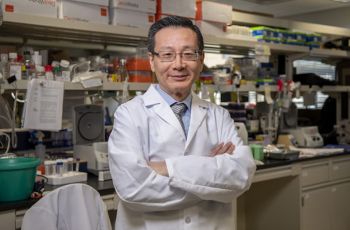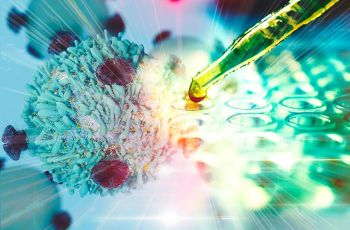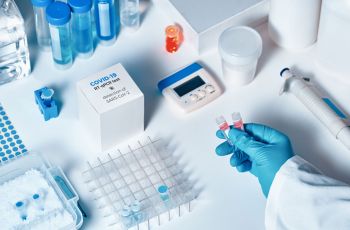Biochemistry & Molecular Medicine
George Washington University researchers have identified a key molecule in certain kinds of breast cancers that prevent immune cells from entering tumors and killing the cancer cells inside. The paper and its findings, published today in Nature, could pave the way toward a new treatment for certain…
The GW School of Medicine and Health Sciences HIVE lab takes 5th place out of 44 teams competing teams the Veterans Administration’s 2020–21 National AI Tech Sprint. Their prototype application harnesses powerful machine-learning tools for treatment outcome prediction and guided clinical…
The George Washington University (GW) Cancer Center recently announced the selection of the 2021 GW Cancer Center Awards, recognizing excellence in research, mentorship, and early career contributions.
As Naval Hospital Bremerton, in Bremerton, Washington, began to respond to the COVID-19 pandemic, there was an increased demand to be prepared to provide testing for those in need.
Four young researchers at the GW School of Medicine and Health Sciences were selected as fellows to the recently awarded five-year National Cancer Institute T32 Training Grant.
Guido Pelaez, MD student at SMHS, will have a chance to build on his passion for research after being chosen for the American Society of Hematology 2020 Minority Medical Student Award Program.
The BioCompute Object Specification Project led by a team at SMHS has been officially approved for publication as an internationally recognized standard by the Institute of Electrical and Electronics Engineers Standards Association.
A consortium led by GW has been refunded for their BioCompute Object Specification Project, thanks to a $2.2 million, five-year grant from the U.S. Food and Drug Administration.
Lopa Mishra, MD, director of the Center for Translational Medicine at the GW Cancer Center and professor of surgery, Shuyun Rao, PhD, assistant research professor of surgery, and others published research in the journal Gastroenterology finding a connection between bacteria in the microbiome…
GW Cancer Center researchers found that PTEN, a tumor suppressor gene mutated in approximately 20% of primary prostate cancers, and in as many as 50% of androgen deprivation-resistant prostate cancers, relies on another gene, ARID4B, to function.





